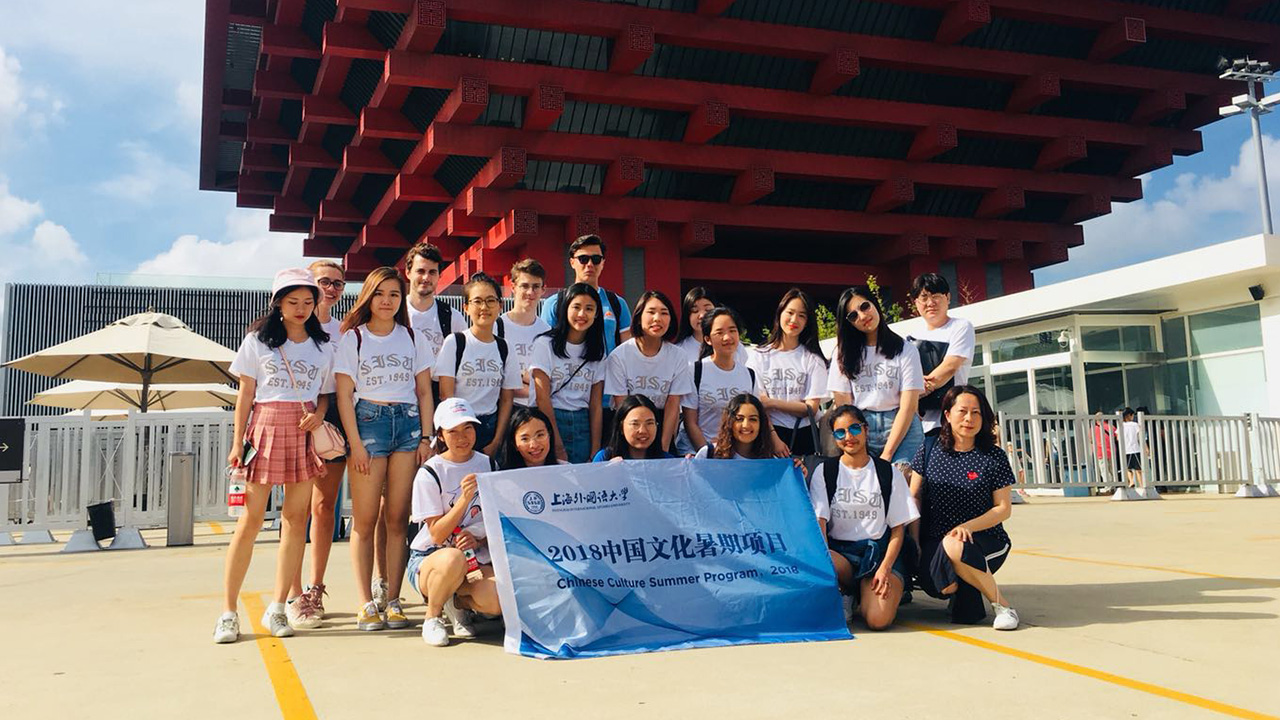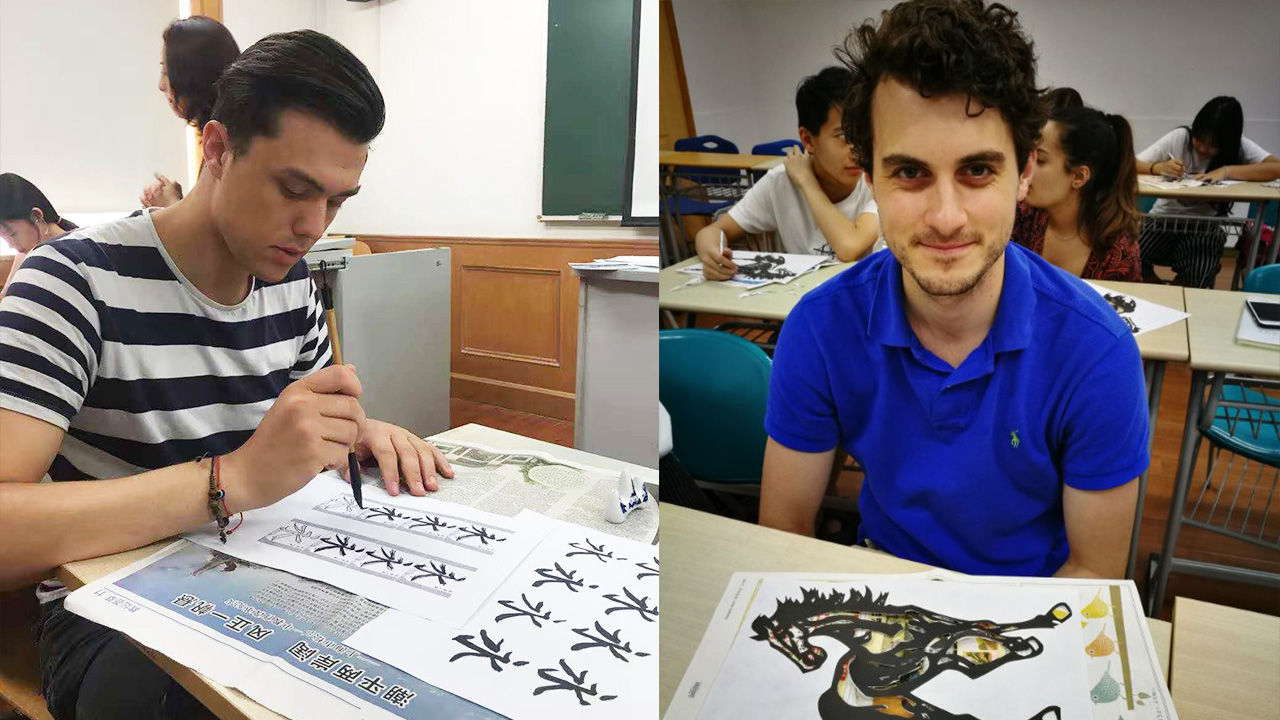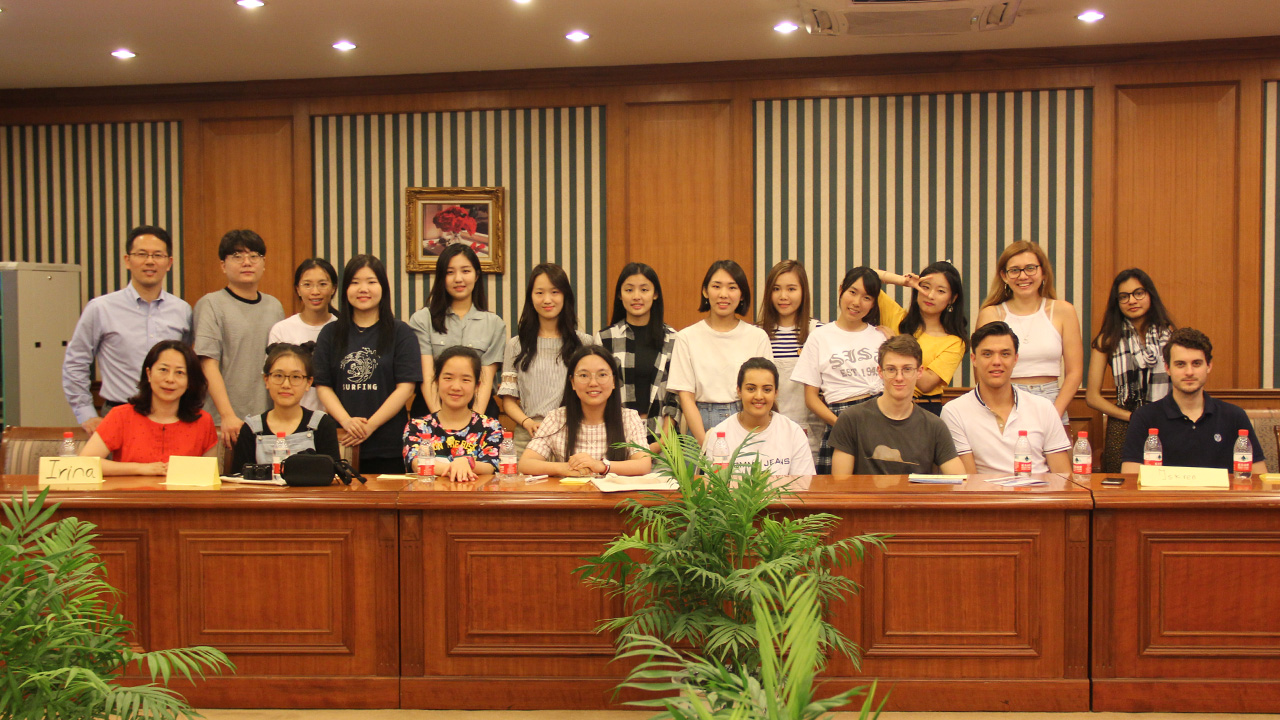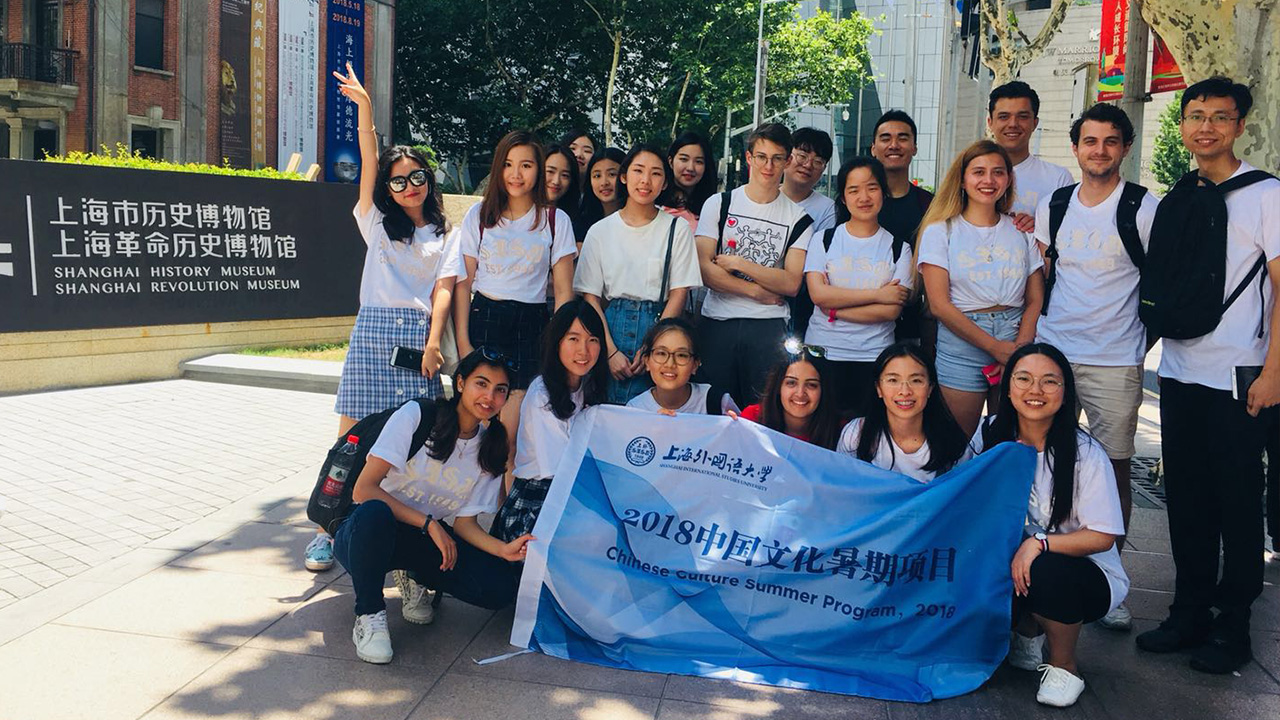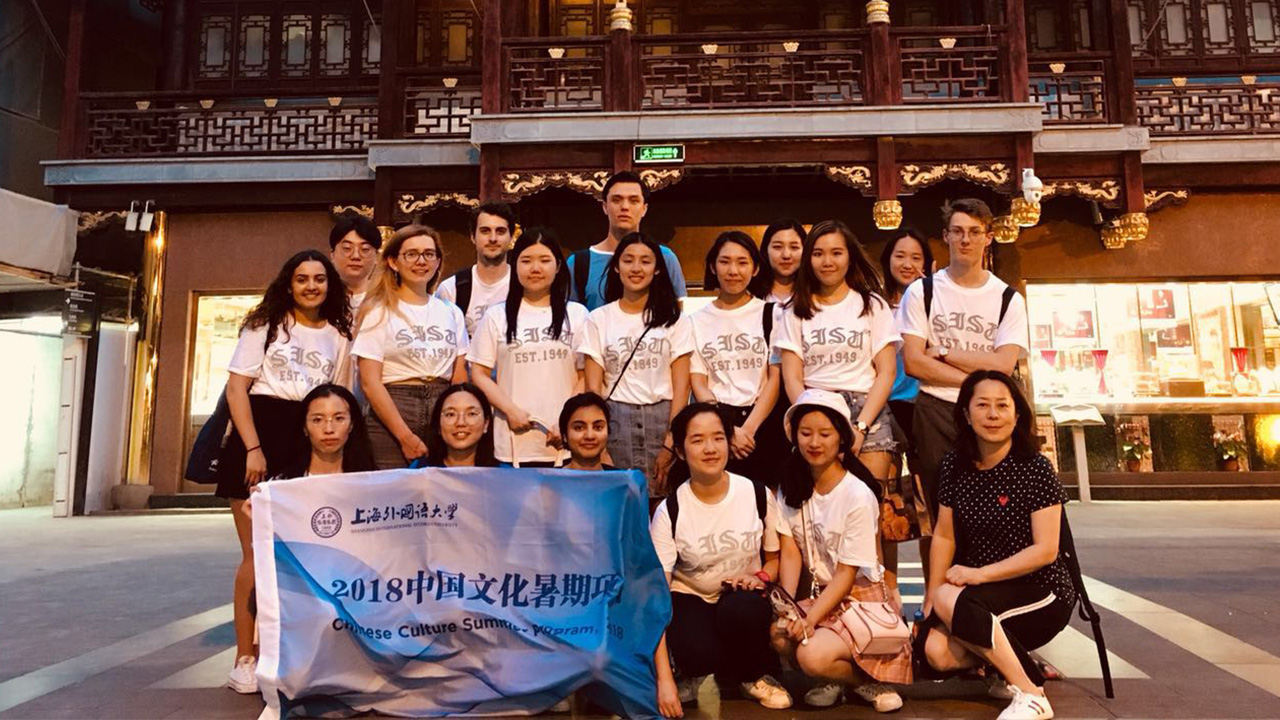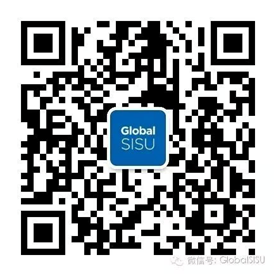| T |
he 2018 Chinese Culture Summer Program rang down its curtain on July 27, 2018 on the Hongkou campus of Shanghai International Studies University (SISU).
Started on July 9, the program, with the theme “Feeling China: An Exploration of Chinese Culture”, gathered twenty students from the Netherlands, the United Kingdom, South Korea and China for a wonderful three-week journey on Chinese culture.
Initiated five years ago by SISU’s School of English Studies, the Chinese culture program this year was upgraded from a school-level program to a university-level one.
Consisting of a lecture series on Chinese culture and city tours, the program encouraged students to gain cross-cultural experience by probing into Chinese culture in a more approachable way.
Fifteen lectures given by SISU scholars and guest professors cover three major modules, including Chinese thoughts, Chinese traditional art and literature, and Chinese social life.
Following a historical timeline, these lectures present Chinese wisdom ranging from Confucianism of pre-Qin times to “Belt and Road” Initiative of the contemporary age.
Some are featured by traditional artistic forms such as Chinese opera, calligraphy and poetry, while others tell stories about the vicissitude of Shanghai as well as Chinese social life. The correlation between the lectures and their thematic uniqueness have offered the students a comprehensive, panoramic overview of the heritage of Chinese civilization.
The program also extended to off-campus experience, taking students to explore the City of Shanghai, China’s most global metropolis.
Students’ footprints covered many famous attractions, including Yu Garden, China Art Museum, Shanghai Urban Planning Exhibition Center, Shanghai Tower and the Bund. The attractions had dots of knowledge connected and trains of thinking embodied that all students were enabled to relate lectures to the real life in China.
During the program, seven SISU students act as volunteers, learning together with international students and the students from Hong Kong SAR and communicating about their school work, hobbies and culture.
On the weekends, local students took their friends to their favorite shopping malls and restaurants. In addition to intellectual growth, all students harvested precious friendship.
With optimized curricular design, the program received substantial support from SISU’s Office of International Cooperation and Exchange, and School of Chinese Studies and Exchange.


